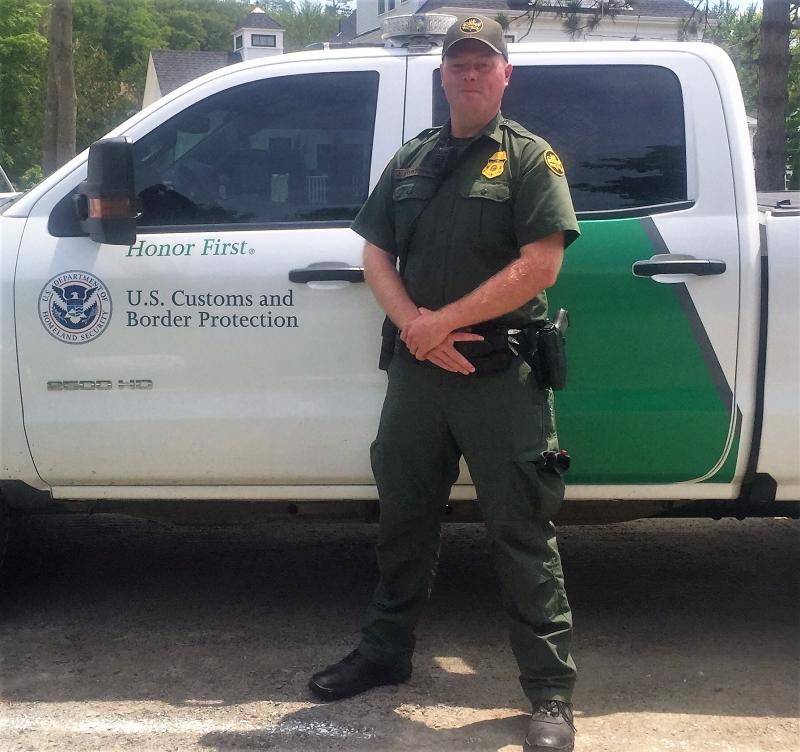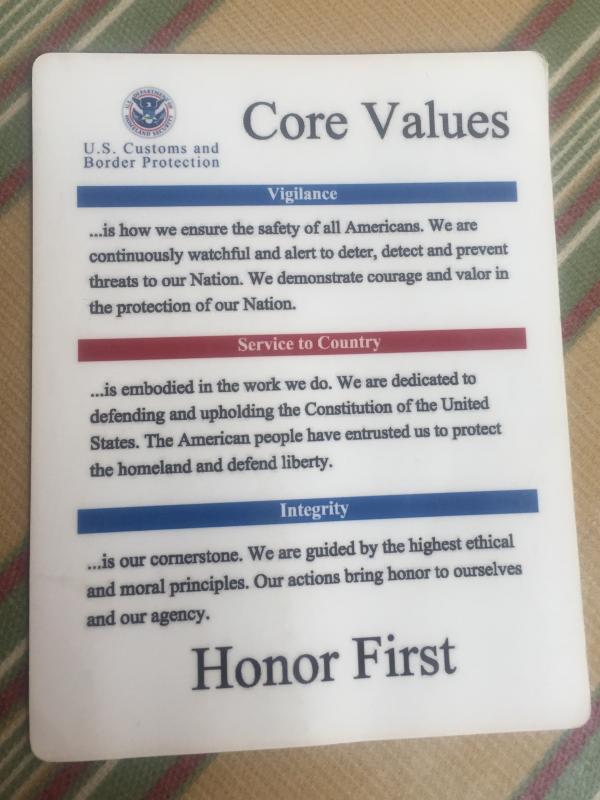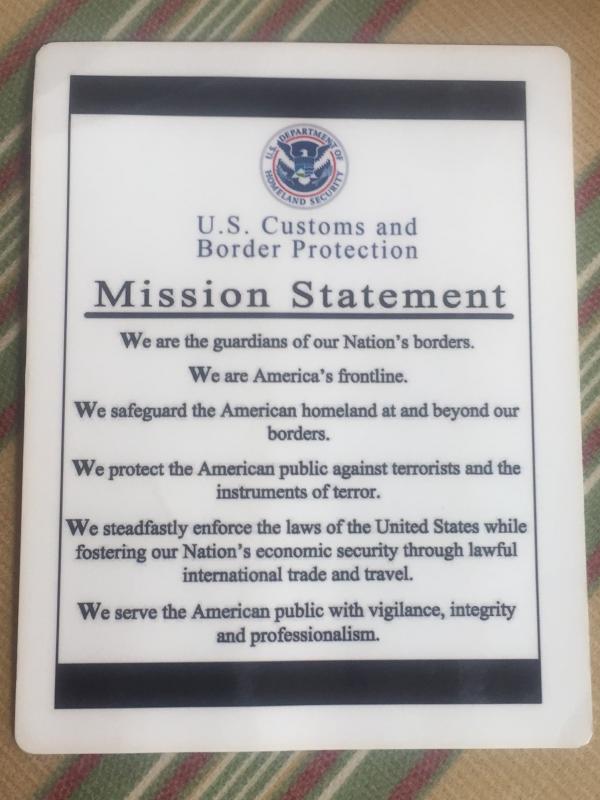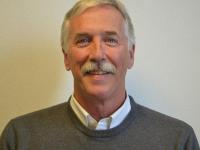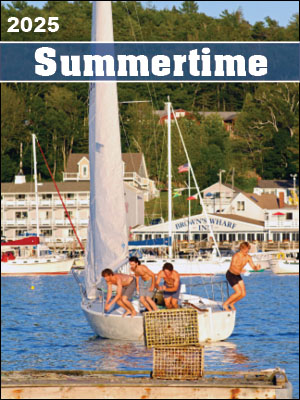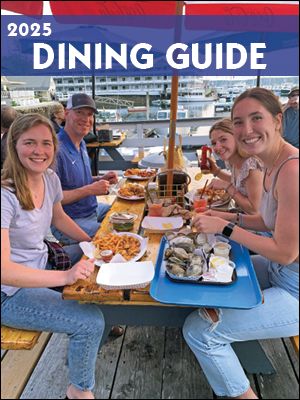From Arizona/Mexico border to Maine coast: CBP Agent Jacob Stukenberg talks border patrol
U.S. Customs and Border Protection Agent Jacob Stukenberg moved to Midcoast Maine in April as a resident agent for Lincoln, Knox and Waldo counties under the Calais station’s management. Fresh from 10 years on the Nogales, Arizona stretch of the U.S.-Mexico border, Stukenberg’s mission remains the same: Protecting the nation’s borders.
The CBP Mission Statement and Core Values are carried in every agent’s breast pocket so the “vigilance, service to country and integrity” of an “Honor First” lifestyle is close to heart. Stukenberg said the Field Operations Academy leaves no uncertainty to what serving with honor first means and, having held those beliefs to the highest regard, his first reaction in the field has always been approaching others with decency and humanity.
Stukenberg started his federal career as a customs officer in Montana working at ports of entry. He transferred in July 2010 to border patrol in Nogales, where he trained for six months before becoming a full fledged officer. In October 2020, Stukenberg transferred to the academy as an instructor before finding the Midcoast Maine job.
“The biggest thing I’d like people to know about me, and any agents in Maine, is our compassion and desire to help people regardless of where they are from … Most people don’t really have a solid understanding of what BPA’s really do, the lives we save, the narcotics we stop and some of the apprehensions we make who turn out to be dangerous.”
Stukenberg said there is a disconnect between society and law enforcement that must be addressed to get at the root of many of these issues, but that takes a lot of legwork. Since he is not overly burdened in the field, Stukenberg said he has the rare ability to tour the communities he works in and around and have those conversations. It is some of the most important work he can do because it allows him to get on a personal level with people and gives him the unique opportunity to dispel myths and rumors about CBP and his role as an agent, Stukenberg said.
Many of the preconceptions come from media soundbites and a poor balance of information sources which breeds two types of uninformed citizens, he said: “There are a lot of people out there who love border patrol and a lot of people out there who hate us. Typically, both of those groups of people have one thing in common: They don't know one thing about us.”
Most border apprehensions are people fleeing the violence of their homeland, but with the plague of human and drug trafficking, bringing to light all who cross illegally is important for the sake of national security and for the people in search of safety and freedom, said Stukenberg.
“I'm not after people who look a certain way, who speak a certain language … If you can tell me what ‘an illegal’ looks like, I'm all ears because I've apprehended people from countries around the world: China, India, old Soviet bloc. There's a lot more going on and a lot of people don't know that … What I do wish people understood is we're not judge and jury or anything like that, our job is to apprehend and identify so we know who's in our country.”
Stukenberg said the average non-citizen who makes it across the border undetected will be taken advantage of in some form whether that is through trafficking, employment or some other scheme holding their illegal status over their heads. By bringing that person out of the shadows, Stukenberg said they have recourse in a court of law to find a path keeping them in the U.S. It also protects the integrity of the local labor market by holding accountable businesses which hire non-citizens on the cheap.
“Now they're able to go before a judge and get … a work authorization, they're going to get a tax ID number, they're going to be able to go out and apply to any job they want. They're going to be able to be paid proper wages and get proper compensation with proper benefits. Basically, we give them access to almost anything available we have. It's easy to say 'You've ruined this person's life' when in reality, I might've done the best thing possible in that person's situation.”
The principles are the same here in Maine, said Stukenberg. Since he arrived, CBP has had several apprehensions, some of which may have involved people in situations similar to those he described, he said.
“I've got three counties I'm responsible for and I'm trying to get to all of them and talk to people and get them to know me. I meet so many people every day and I just want to talk to everyone … I mean, I'm not going to chase you down and say, 'Ask me questions!' but I want people to be comfortable. So, I keep coming back.”
Event Date
Address
United States

